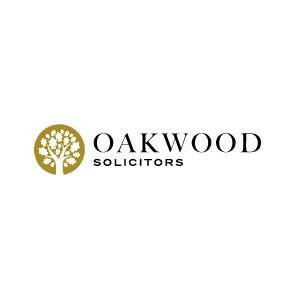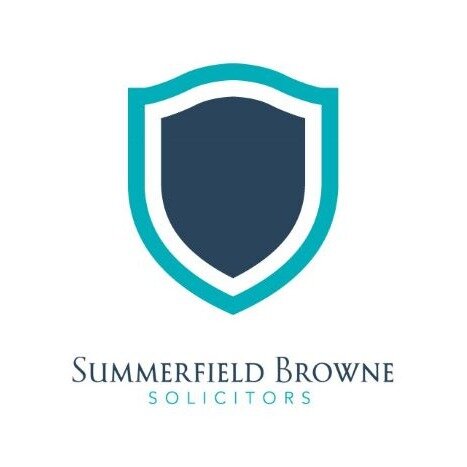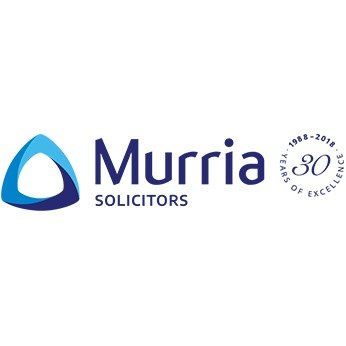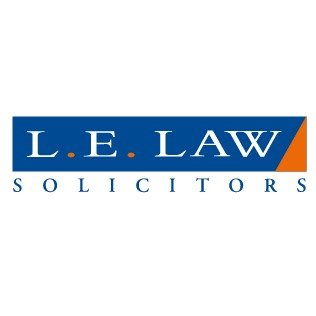Best Debt & Collection Lawyers in United Kingdom
Share your needs with us, get contacted by law firms.
Free. Takes 2 min.
Or refine your search by selecting a city:
List of the best lawyers in United Kingdom
About Debt & Collection Law in the United Kingdom
Debt and collection law in the United Kingdom is designed to regulate the process of recovering outstanding debts from individuals or businesses who are unable or unwilling to pay. This area of law ensures that debt recovery is conducted fairly, legally, and ethically, providing protection for both creditors and debtors. The regulations cover how debts can be collected, the rights of debtors, the methods of communication allowed, and the time limits for collecting different types of debts.
Why You May Need a Lawyer
There are several situations where individuals and businesses might seek legal advice in the matter of debt and collection. These include:
- Receiving threatening or unfair practices from debt collectors.
- Dealing with complex debt cases involving multiple creditors.
- Facing legal action from a creditor or debt collector.
- Negotiating settlements or restructuring repayment plans with creditors.
- Protecting assets when you are unable to repay debts.
- Understanding bankruptcy options and procedures.
- Seeking advice on consumer rights and protections.
Local Laws Overview
The key aspects of local laws relevant to debt and collection in the United Kingdom include:
- Consumer Credit Act 1974: This regulates credit agreements and provides protection to consumers in debt.
- Office of Fair Trading (OFT) Guidelines: Although the OFT has been replaced by the Financial Conduct Authority (FCA), these guidelines set out acceptable behaviors for debt collectors.
- FCA Rules: Debt collectors must be authorized by the FCA, and they must adhere to the rules and standards set by this body.
- Limitation Act 1980: Limits the time a creditor has to take legal action to recover a debt, typically six years from the last acknowledgement or payment.
- Insolvency Act 1986: Governs bankruptcy and insolvency proceedings, detailing the processes involved and the rights of all parties.
Frequently Asked Questions
What is considered unfair debt collection in the UK?
Unfair debt collection includes practices like threatening violence, contacting at unreasonable times, misleading or deceiving the debtor, and failing to respect the debtor's privacy.
How can I stop a debt collector from contacting me?
You can request that a debt collector stops contacting you by sending a written request. It's advised to seek legal advice before taking such steps as it's important to ensure that you don't inadvertently acknowledge the debt.
Can debt collectors add fees or interest to my debt?
Debt collectors can add certain fees or interest if it is permitted by your original credit agreement or by law. It's essential to understand your agreement and check any fees added are lawful.
How long can a debt be legally pursued in the UK?
Most unsecured debts are subject to a limitation period of six years. After this period, the debt is generally considered statute barred, meaning legal action cannot typically be pursued.
What should I do if I am being taken to court over a debt?
If you're being taken to court over a debt, seek legal advice immediately to understand your options, such as defending the claim or negotiating a repayment arrangement.
What rights do I have if I cannot pay my debts?
Debtors have rights under various UK laws including the right to be treated fairly, the right to dispute unfair practices, and certain protections against losing essential property.
Can a debt collector contact my employer?
Debt collectors can contact your employer to confirm employment details but they are not allowed to discuss your debt without your permission.
What is a County Court Judgment (CCJ) and how does it affect me?
A CCJ is a court order in England, Wales, and Northern Ireland used to recover money owed by individuals or businesses. It can impact your credit rating if not paid promptly.
How do insolvency options like bankruptcy work in the UK?
Insolvency options, including bankruptcy, allow individuals burdened by insurmountable debt to have those debts discharged or restructured, often involving the selling of assets.
What should I do if I believe a debt is not mine?
If you believe a debt isn't yours, immediately contact the debt collector in writing disputing the debt. Keep records of all communications and seek legal advice if necessary.
Additional Resources
Here are some resources and organizations that can assist with debt and collection issues:
- The Financial Conduct Authority (FCA): Provides guidelines and enforces rules on fair debt collection practices.
- Citizens Advice: Offers free, confidential advice to help individuals overcome their debt issues.
- StepChange Debt Charity: Specializes in providing free debt advice and debt management plans.
- National Debtline: A free, confidential debt advice service which is supported by the government.
Next Steps
If you need legal assistance with debt and collection issues, consider the following steps:
- Gather all relevant documents related to your debts, such as credit agreements and correspondence with creditors.
- Contact a solicitor or legal advisor specializing in debt and finance law to discuss your situation.
- Explore free legal aid or charity services if cost is a concern.
- Develop a plan with your legal advisor for addressing or defending any claims against you.
- Stay informed about your rights and obligations regarding debt collection.
Lawzana helps you find the best lawyers and law firms in United Kingdom through a curated and pre-screened list of qualified legal professionals. Our platform offers rankings and detailed profiles of attorneys and law firms, allowing you to compare based on practice areas, including Debt & Collection, experience, and client feedback.
Each profile includes a description of the firm's areas of practice, client reviews, team members and partners, year of establishment, spoken languages, office locations, contact information, social media presence, and any published articles or resources. Most firms on our platform speak English and are experienced in both local and international legal matters.
Get a quote from top-rated law firms in United Kingdom — quickly, securely, and without unnecessary hassle.
Disclaimer:
The information provided on this page is for general informational purposes only and does not constitute legal advice. While we strive to ensure the accuracy and relevance of the content, legal information may change over time, and interpretations of the law can vary. You should always consult with a qualified legal professional for advice specific to your situation.
We disclaim all liability for actions taken or not taken based on the content of this page. If you believe any information is incorrect or outdated, please contact us, and we will review and update it where appropriate.
Browse debt & collection law firms by city in United Kingdom
Refine your search by selecting a city.

















